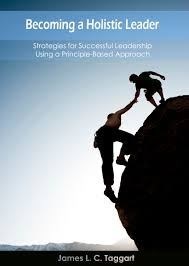The Five Learning Disciplines: How They Help Us Become Better Leaders

Senge is the Director of the Center for Organizational Learning at MIT’s Sloan School for Management and the founder of the Society for Organizational Learning. He has introduced his work to tens of thousands of managers in dozens of organizations throughout North America and Europe. He continues to be seen as one of the world’s leading thinkers on organizational learning.
Before delving into the five disciplines and what they mean for learning and leadership in organizations, let’s begin with a look at the Seven Learning Disabilities. Understanding what these disabilities represent, and the impact they have on how organizations function, is critical to developing a more complete picture of how people collectively learn in organizations.
The 7 Learning Disabilities
Most organizations, not surprisingly, have difficulty learning when viewed as a collective of people. To address this problem we first need to identify what’s called the Seven Learning Disabilities. After each description of a disability, a few thoughts and questions are included for your reflection.
1. I am my position. Because we’re expected to be loyal to our jobs, we tend to confuse them with our own identities. As Senge explains: “When people in organizations focus only on their position, they have little sense of responsibility for the results produced when all positions interact.”
Try this little experiment: the next time you meet someone for the first time (e.g, on an airplane, at a party or a social function), ask them what they do. Listen carefully. Does the person talk about their corporate position and how important their work is? Or do they talk about family or a passion, such as music or photography? You’ll learn a lot about this individual just from their response.
2. The Enemy is Out There. We have a tendency to blame others when something goes wrong, whether it’s another unit in the organization, a community board of directors, or a competitor company. Pay attention to what YOU say during times of trouble. Effective leaders don’t finger-point; they solve problems. How often have you been caught in this learning disability.
3. The Illusion of Taking Charge. We hear all too often that we must be pro-active, taking action to make something happen. However, pro-activeness can really be reactiveness in disguise. True pro-activeness comes from our ability to see how we contribute to our own problems. In essence, it’s the outcome of how we think, not how we react emotionally.
Are you engaged in “busyness” or in moving forward in a strategic way for the betterment of your organization? If you’re in a managerial position, are you really in charge? Who are the real leaders in your organization?
4. The Fixation on Events. The ongoing discussions and conversations in organizations focus typically on events, those “urgent” day-to-day issues that grab our attention. But the real threats to our survival are not events but rather the slow, gradual processes that creep up on us. We need to move away from short-term thinking to long-term thinking.
Take time to periodically reflect from where you’ve come and how you got there. Do you see a pattern? Is your thinking locked into the daily grind? What do you need to do to integrate events into a big picture perspective?
5. The Boiled Frog. This parable states that if you place a frog in boiling water it will hop out immediately. If you place it in cool water and gradually turn up the heat, the frog will remain in the pot, growing groggier until it cooks to death. What we learn from this parable is that if we wish to see the slow, gradual processes, we must slow down and pay attention to the subtle as well as the dramatic.
How are you coping in a frenetically-charged world? Do you take time out to do some personal reflection and thinking? Are you able to see the gradual, long-term trends?
6. The Delusion of Learning from Experience. We learn best from direct experience. In organizations, however, we usually don’t experience directly the consequences of our decisions. A major underlying reason for this is the functional silos that exist. These silos impede the flow of communication among people. The organization’s ability to analyze complex problems is subsequently greatly weakened.
How often (and how long) have you been in this environment? What can you do to help move your organization off this track?
7. The Myth of the Management Team. This reflects the desire for management to appear as a cohesive group that’s pulling in the same direction. The reality is that in most management ‘teams’ the need to uphold their image means that dissent is frowned upon and that joint decisions are ‘watered-down compromises.’ As Harvard’s Chris Argyris has discovered through his research (and referred to frequently by Senge), most organizations reward those who promote senior management’s views. Those who pose probing questions or who rock the boat are penalized.
What is your corporate culture?
Are you and others (including senior managers) operating in a compliance mindset?
What will be the ultimate effect on the organization’s performance and longevity? Do you wish to be part of this culture?
This brief look at the seven learning disabilities helps set the context for an exploration of the five disciplines. One key point needing emphasis is that these disciplines are all interrelated. They do not stand independently. And this is the beauty of understanding the five disciplines: because they are interrelated, they help us make sense of the complexities and turbulence inside and outside our organizations.
Our starting point is what Senge calls the cornerstone of the five disciplines: systems thinking. It underlies the other four disciplines: personal mastery, mental models, shared vision, and team learning.
To practice a discipline is to be a lifelong learner. You never arrive. The more you learn, the more acutely aware you become of your ignorance.
— Peter Senge
Next post: Systems Thinking
__________________________________________________________________________________________________

Articles from Jim Taggart
View blog
Your faithful correspondent has been a long-time proponent of self-empowerment, writing extensively ...

In the previous post Is Your Team REALLY a Team? Why Instant Pudding Doesn’t Cut It we looked at the ...

In my last post we looked at The Five Levels of Teams: Where Are You on the Team Performance Curve? ...
You may be interested in these jobs
-
electrician
Found in: Talent CA 2 C2 - 1 day ago
DLP Electrical Ltd. Burnaby, CanadaEducation: No degree, certificate or diploma · Experience: 2 years to less than 3 years · Work setting · Various locations · Tasks · Install underground wiring and cables · Install, replace and repair electrical controls and panel boxes · Keep maintenance reports and documentatio ...
-

Estimator
Found in: Talent CA C2 - 4 days ago
SNC-Lavalin Toronto, Canada Full timeJob Description · Estimator · Are you looking for a company that works on major engineering projects all over the world? Do you want to make a difference by improving the daily lives of communities worldwide? Are you seeking to join an inclusive and diverse team that you can t ...
-
construction estimator
Found in: Talent CA 2 C2 - 4 days ago
TOTAL-PAVE INC Burlington, CanadaEducation: College/CEGEP · Experience: 3 years to less than 5 years · or equivalent experience · Tasks · Prepare estimates of labour and/or material costs · Prepare pre-qualification submissions to present clients · Read blueprints, drawings and specifications to determine work ...


Comments